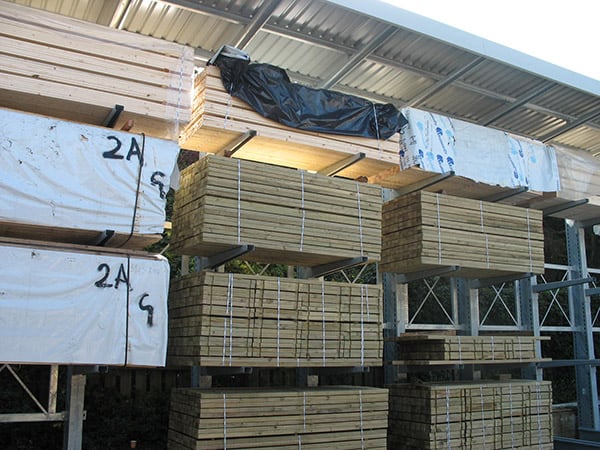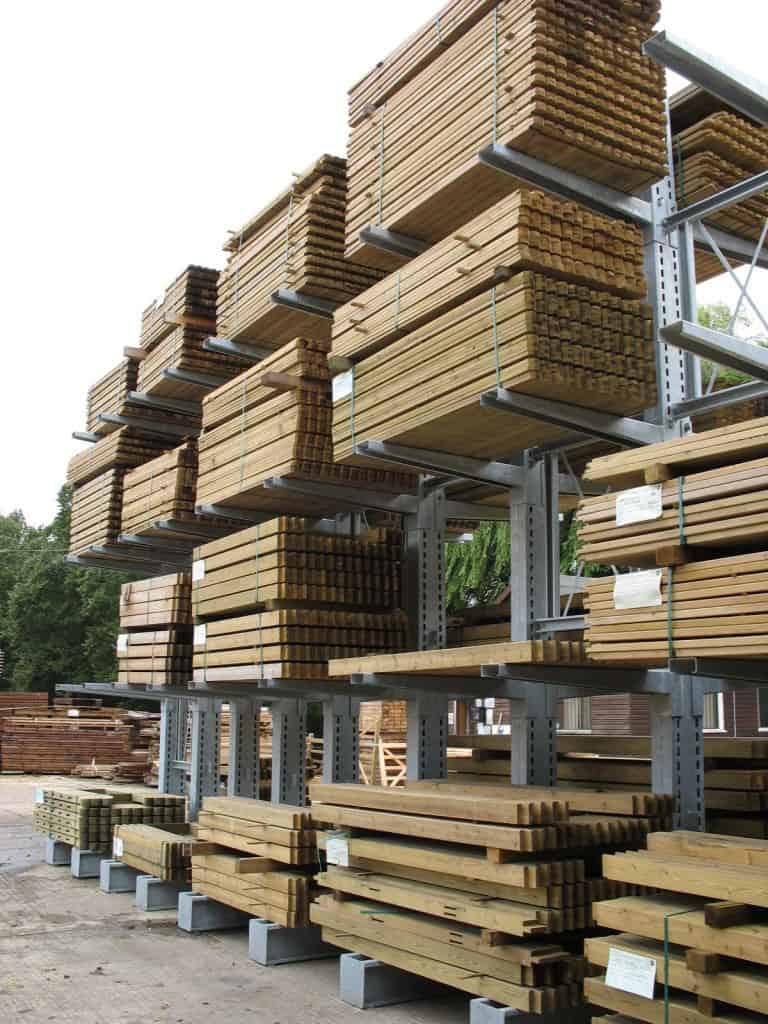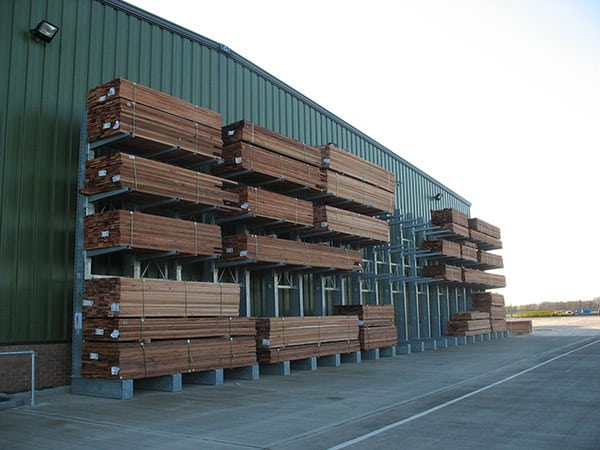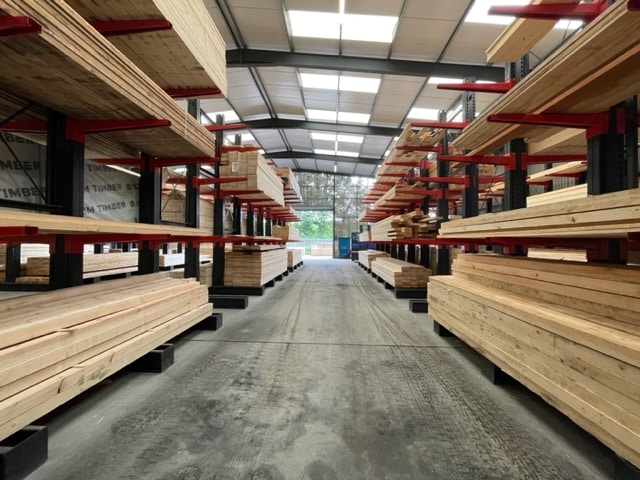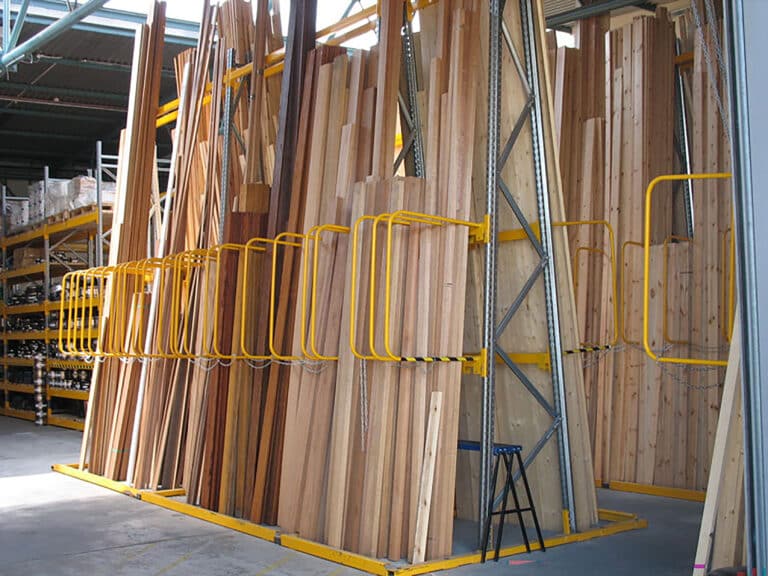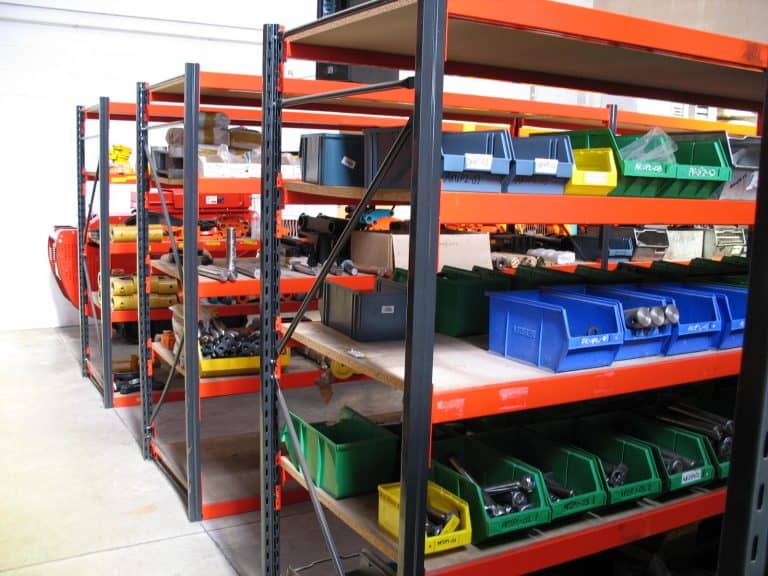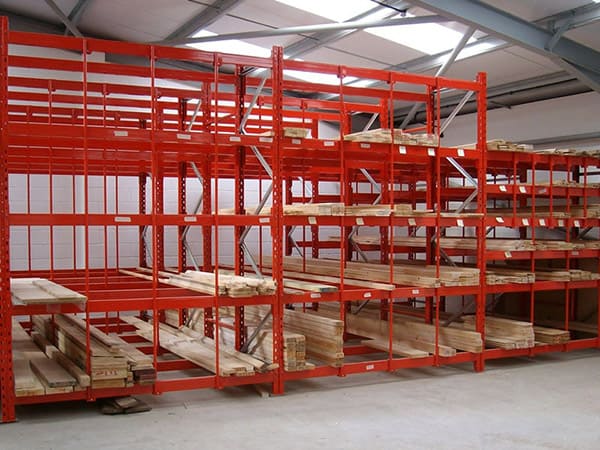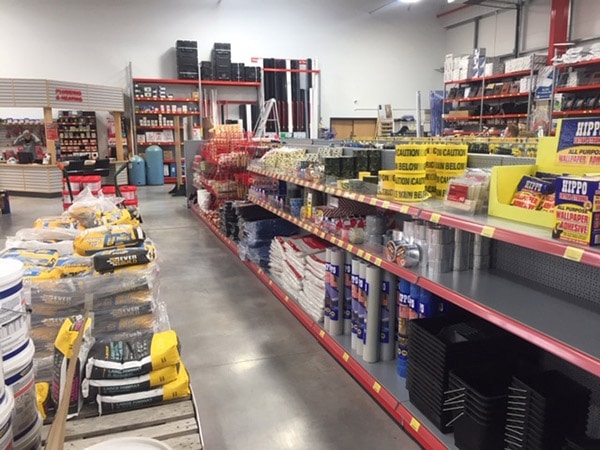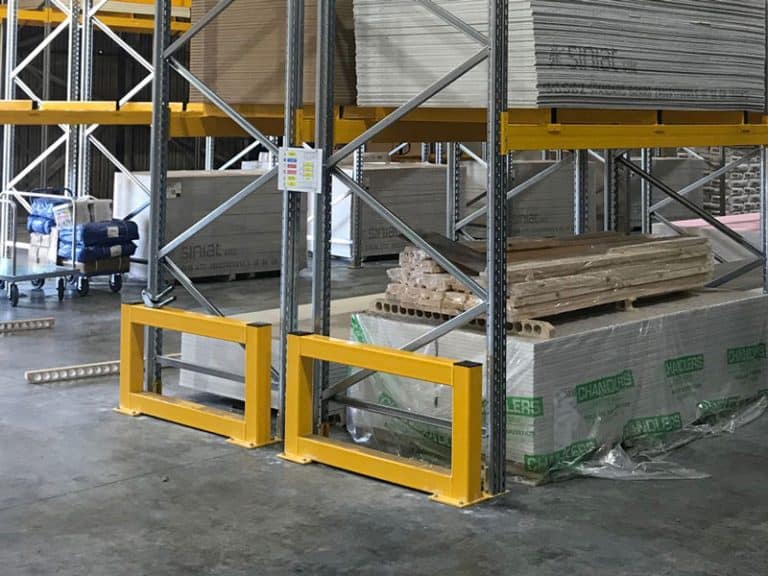Racking for Timber
Home » What Racking Do You Need? – I Want To Store » Racking for Timber
Racking for Timber from Stakapal
Stakapal has manufactured and supplied racking for timber for nearly 60 years and therefore has the necessary expertise in designing optimum racking storage solutions for the trade. Our solutions are a great choice for a yard or warehouse area and for maximising warehouse efficiency.
Stakapal racking has traditionally been used for storing carcassing timber, softwood and hardwood but our in-house design teams can create a bespoke racking system specifically for your business needs.

Stakapal are proud members of the award winning Builders Merchants Federation trade association.
Why use Racking for Timber storage?
- Racking for Timber typically comprises of Cantilever Racking, A -Frame/Vertical Racking or Pigeon Hole Racking which are ideal for the storage and display of products in any yard or warehouse environment.
- Carcassing timber, softwood and hardwood can be selected quickly and easily when using racking, ensuring an improved level of service.
- When storing products externally we offer the facility to include additional weather protection (such as galvanising) with the option of a canopy roof. View our range here.
Selection & Timber Storage Racks
Timber Racking typically comprises of Cantilever Racking which is ideal for both storage and display in any yard environment Products can be easily and quickly be selected when using timber storage racks ensuring improved levels of service When storing Carcassing Timber externally we offer the facility to include additional weather protection with the option of a Canopy Roof
Site Safety Improvements
Timber storage on Cantilever Racks reduces the risk to staff and customers that can be posed by bulk stacking An organised timber storage yard layout makes workplace transport safer in general.
Bottom Line Benefits
Cantilever Racks reduces damage to stock from repetitive handling from mechanical handling equipment when bulk stacking is used Selectivity is much quicker increasing the number of picks per hour making staff more productive Timber storage rack stock control is easier to carry out which reduces overstocking Stock rotation is improved with older stock sold before becoming obsolete or damaged
Site Heath & Safety
- Racking systems can be used to increase ‘picks per hour’ making staff more productive.
- Minimises the risk to staff and customers from moving mechanical handling equipment or bulk stacking.
- An organised storage warehouse or yard makes the workplace safer in general.
Benefits of Storing your Timber on Racking
- Properly designed cantilever racking reduces the chances of damage to stock from repetitive handling from mechanical handling equipment when bulk stacking is used.
- Selectivity is much quicker increasing the number of picks per hour making staff more productive.
- Racking systems make stock control easier to carry out which reduces overstocking.
- Stock rotation is improved with older stock sold before becoming obsolete or damaged.

Stakapal are full members of SEMA (Storage Equipment Manufacturers Association), with our installation and inspection teams fully SARI (SEMA Approved Rack Inspector), and SEIRS (Storage Equipment Installers Registration Scheme) registered.
View Our Range
Read some of our related blog posts...
Why store Timber on Cantilever Racks?
Cantilever Racking is the most common method of racked storage for both Softwood and Hardwood timber products. Columns The system
Maximising Timber Merchants’ Efficiency
Timber merchants play a crucial role in the construction industry, providing essential materials for various projects. However, managing and storing
The Importance of Bespoke Storage Solutions
In this ever-changing world of storage, with new sectors, new requirements, and demands – one size rarely fits all nowadays,
Racking for Timber FAQs
Timber is typically stored using Cantilever Racking, A-Frame | Vertical Racking, or Pigeon Hole Racking. These systems are ideal for efficiently organising timber in both warehouse and yard environments. Ultimately, the style of racking selected all depends on the type of timber being stored.
Yes, our racking systems can be galvanised for weather protection and cold stores. A canopy roof can be added for additional coverage, ensuring the safety of your products from environmental impacts. View our Racking Extras here.
Racking reduces risks by organising timber products safely, minimising the danger from bulk stacking and making workplace transport safer.

